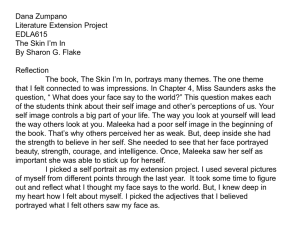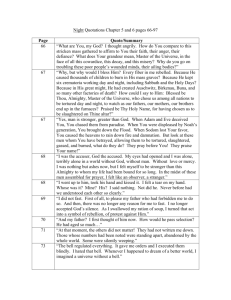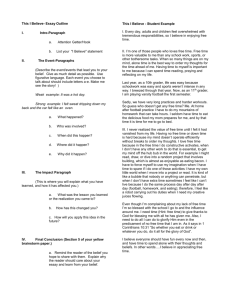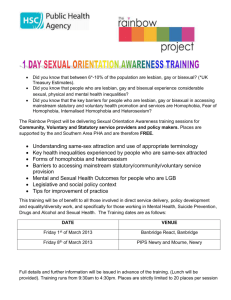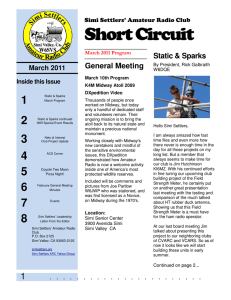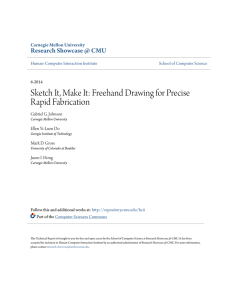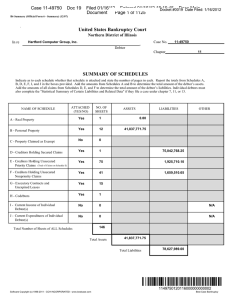A Woman Like Me
advertisement
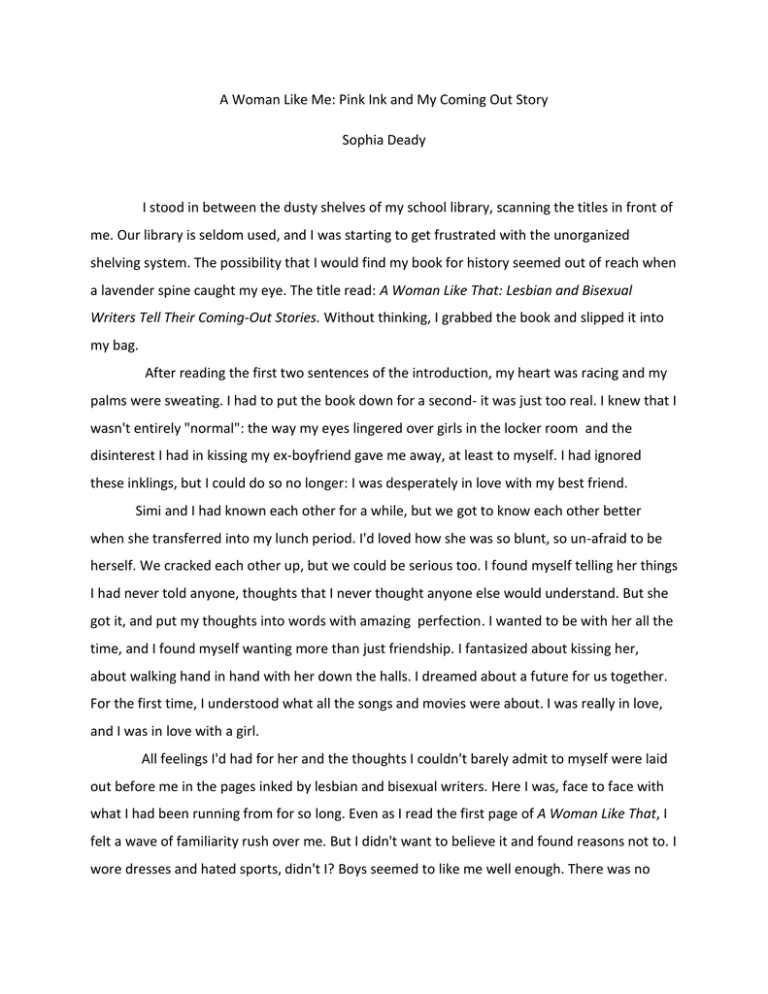
A Woman Like Me: Pink Ink and My Coming Out Story Sophia Deady I stood in between the dusty shelves of my school library, scanning the titles in front of me. Our library is seldom used, and I was starting to get frustrated with the unorganized shelving system. The possibility that I would find my book for history seemed out of reach when a lavender spine caught my eye. The title read: A Woman Like That: Lesbian and Bisexual Writers Tell Their Coming-Out Stories. Without thinking, I grabbed the book and slipped it into my bag. After reading the first two sentences of the introduction, my heart was racing and my palms were sweating. I had to put the book down for a second- it was just too real. I knew that I wasn't entirely "normal": the way my eyes lingered over girls in the locker room and the disinterest I had in kissing my ex-boyfriend gave me away, at least to myself. I had ignored these inklings, but I could do so no longer: I was desperately in love with my best friend. Simi and I had known each other for a while, but we got to know each other better when she transferred into my lunch period. I'd loved how she was so blunt, so un-afraid to be herself. We cracked each other up, but we could be serious too. I found myself telling her things I had never told anyone, thoughts that I never thought anyone else would understand. But she got it, and put my thoughts into words with amazing perfection. I wanted to be with her all the time, and I found myself wanting more than just friendship. I fantasized about kissing her, about walking hand in hand with her down the halls. I dreamed about a future for us together. For the first time, I understood what all the songs and movies were about. I was really in love, and I was in love with a girl. All feelings I'd had for her and the thoughts I couldn't barely admit to myself were laid out before me in the pages inked by lesbian and bisexual writers. Here I was, face to face with what I had been running from for so long. Even as I read the first page of A Woman Like That, I felt a wave of familiarity rush over me. But I didn't want to believe it and found reasons not to. I wore dresses and hated sports, didn't I? Boys seemed to like me well enough. There was no way I could be a lesbian. But the more I read, the more I realized the fallacy of stereotypes and the more I felt the stories resonate in my heart. I couldn't stop reading. Each chapter helped me come to terms with my identity, to open up a memory that had long been closed. Slowly I was starting to accept that this was who I was, but I was afraid that others wouldn't. I brought the book to school and read it in between classes. But instead of reading it openly, I took the cover off a more innocuous book and used clips to fasten it over A Woman Like That's lavender jacket. The way I read this book says a lot about the way I lived my life. I was a girl showing the world what they wanted to see, living her life behind a fake cover. I was keeping secrets from my closest friends and family, and I was even afraid to show Simi who I really was. Everyone had such a strong image of me as straight and "normal" and I felt trapped into that identity. I was lonely. Watching Simi and her boyfriend made everything even worse. With each kiss and cuddle, I felt more despair. Their relationship was living proof of what I didn't and would never have. Outwardly, I projected a girl who was self-assured and happy, but pain and shame were eating me up inside. I hated lying, but I didn't have the courage to start telling the truth. The turning point for me was when I read the story by Mariana Romo-Carmona. She had risked everything when she came out. Her family cut her off, and her children were even removed from her custody. Despite everything she lost, she wrote that she still thought coming out was the best decision she had ever made. Reading this was a turning point for me. If she could do it and risk all that, so could I. I started thinking about ways to tell my parents and friends. The clips that held on the fake cover were coming undone. I decided to tell Simi first, hoping that since she knew me so well she would be supportive. One day when we were hanging out at her house after school, I asked, "Simi, can I tell you something?" and she answered, "Of course." "This has been really difficult for me, but I need to tell you that I'm a lesbian. Also, I have feelings for you." She hugged me and said, "You're my best friend, the best I've ever had. I'm so proud of you for being honest, and I'm honored that you told me. I'm here for you, whatever you need." We sat like that for a long time, and everything that I had kept pent up inside came rushing out. I cried with relief. When I came home that day, I felt like an enormous weight had been lifted. Her positive reaction gave me the courage to come out to my family and friends. It wasn't easy, but I was surprised by the positive reactions I got back. Most people were happy that I was being honest and said that it didn't make a difference to them at all. Others rolled their eyes, laughed, or never mentioned it again. I started coming out in October, and I know the process is far from over. I will face more people that don't accept this small part of me, but the important thing is that I'm on the road to embracing all of who I am. My life is so different from what it was like just six months ago, and I couldn't have done it without a lavender book on a dusty shelf that showed me it was okay to like girls. In those stories I found the solace and courage I needed. I have unfastened the clips on my fake cover, and I am proud to be a woman like me. Works Cited Larkin, Joan, ed. A Woman Like That: Lesbian and Bisexual Writers Tell Their Coming Out Stories. New York: Avon, 1999. Print.

